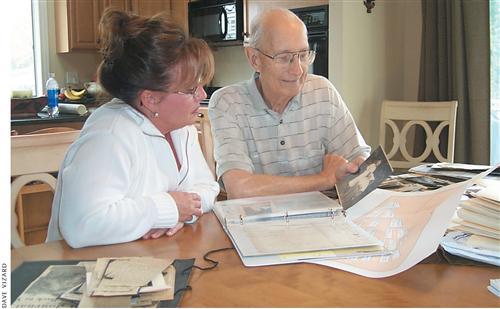Sign up for the Family Tree Newsletter Plus, you’ll receive our 10 Essential Genealogy Research Forms PDF as a special thank you!
Get Your Free Genealogy Forms
"*" indicates required fields

“It’s really very much like being a detective,” says the retired General Motors business accountant. “You’ve got to follow the clues, and then they have to be proven before you can take them as facts.”
The case Spicer fondly calls his “Search for the Family of the Civil War Letters” took six months to crack. Susan Carpenter, the letters’ new guardian, had no knowledge about her soldier relative. “I was so thrilled when Duane called me and told me about the letters, and that I had a relative who was in the Civil War,” she says. “It came totally out of the blue, but he really made my day.”
It all started when a Michigan antique dealer discovered the papers in a piece of furniture he’d bought at an auction. Eventually, the letters found their way to a Civil War battle re-enactor who also happened to be a friend of Spicer’s.
“We thought it would be just great if we could place the letters in the hands of this soldier’s relatives,” says Spicer, who started his investigation from his Flint, Mich., home, early last year. “I figured the best way to do that was to go back to the beginning and trace forward — the opposite of the way a genealogist usually works.”
That took Spicer back some 140 years to the Civil War and the 130th New York Volunteers (later renamed the 1st New York Dragoons). The regiment’s young drummer and bugler, James L. Wade, corresponded with his sister Mary Jane Pierson back home. Three of Wade’s letters, penned in 1862, 1863 and 1865 at camps in Virginia and Maryland, and a hospital in Washington, DC, reveal a soldier who missed his family terribly, but was dedicated to winning the war. Wade’s last letter laments the death of President Abraham Lincoln, who was “so Brutally Murdered.”
But the missives didn’t give Spicer many clues to start his research. He began by ordering Wade’s pension records from the National Archives and Records Administration <www.archives.gov>, and used databases on the Church of Jesus Christ of Latter Day Saints’ FamilySearch Web site <www.familysearch.org>. Those records revealed the names and birth dates of the soldier’s children. Spicer also found Wade’s 1923 obituary in New York’s Perry Herald newspaper, as well as federal census data on his family members. Apparently, several moved to Michigan after the war.
The trail led to Carpenter’s doorstep in Goodrich, Mich. She says a long-ago family dispute broke the link in her ancestry. “Duane has given me a wonderful gift. Now I’m learning all kinds of things about my family that I couldn’t possibly have known before.”
ADVERTISEMENT

